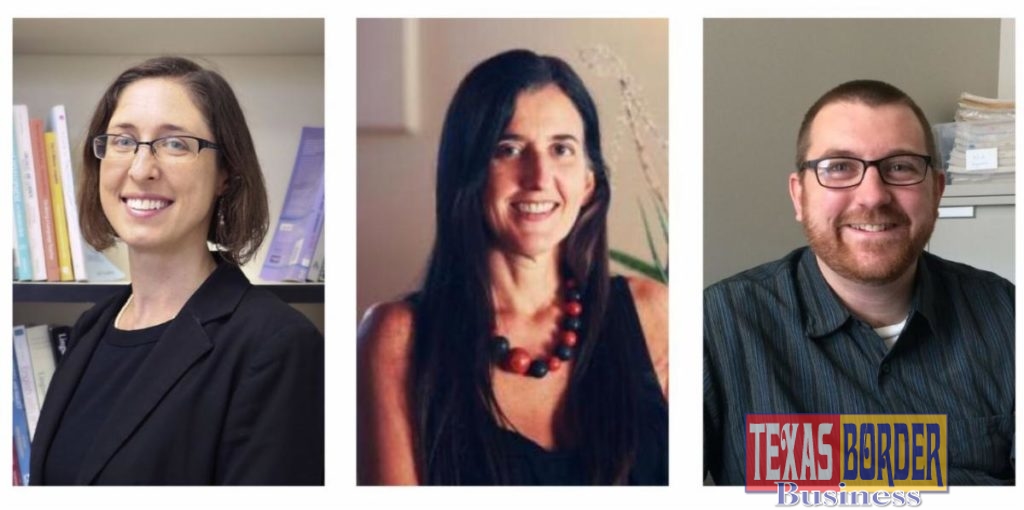
Texas Border Business
RIO GRANDE VALLEY, TEXAS – MAY 21, 2020 – The National Endowment for the Humanities (NEH) has awarded two UTRGV professors and their University of Arizona collaborator a grant for a project on bilingualism on the U.S. Mexico border.
UTRGV’s Dr. Katherine Christoffersen, the project director and principal investigator on the grant, with Dr. Ryan Bessett (UTRGV, co-PI) and Dr. Ana Carvalho (University of Arizona, co-PI), have received an almost $60,000 Humanities Collections and References Resource grant for their project, Bilingual Voices in the U.S./Mexico Borderlands.
As a multi-site project, it will document language in the Rio Grande Valley and in Southern Arizona by expanding development of two website-based collections of interviews with community members, the Corpus Bilingüe del Valle (CoBiVa) and Corpus de Español del Sur de Arizona (CESA).
Christoffersen and Bessett completed their PhDs at the University of Arizona with Carvalho, who created the Southern Arizona corpus. Inspired by her work, the three submitted a proposal to NEH in July 2019.
Christoffersen, an assistant professor in Applied Linguistics, said the research team is excited to move forward on the project and to continue documenting language in the Rio Grande Valley.
“Linguists have known for decades that code-switching – using Spanish and English together – is a highly sophisticated skill,” Christoffersen said. “Through the systematic study of language, we hope to increase this understanding and the prestige of code-switching and local language varieties among students and community members.”
The funding will be used to test various transcription methods aided by technology – like reporting on the accuracy and speed of revising auto-generated transcripts.
The team also will be able to fund student participation in research through the grant.
They will share their findings at conferences and in publications, webinars and workshops, in the hope of inspiring the creation of more community-based, community-driven corpus projects.
Beyond their importance for scholarship, the corpora are valuable local resources for the community, and for teaching Spanish to Heritage Language Learners.
“Bilingual dialects are commonly stigmatized. This is especially true of the Spanish spoken along the US-Mexico border,” said Bessett, an assistant professor of Hispanic Linguistics. “The research team hopes that local teachers will use CoBiVa as a tool in Spanish and dual language classrooms. By bringing a corpus of local, bilingual Spanish into the classroom, it legitimizes the linguistic variety and elevates its status in the community.
“In addition, by comparing this bilingual corpus to monolingual ones, students are able to see that many of the forms they use which they interpret as ‘incorrect’ are actually found in monolingual communities as well,” he said.
The CoBiVa website (www.utrgv.edu/cobiva) includes a blog that will feature updates to the project, and a list of related presentations and publications.
Pending a short online request form, anyone can access the actual collection of revised, anonymized interviews with audio files, clickable transcripts and background and demographic information on the interviewees.
Christoffersen and Bessett plan to have 50 interviews and audio files posted on the website by December 2020.














